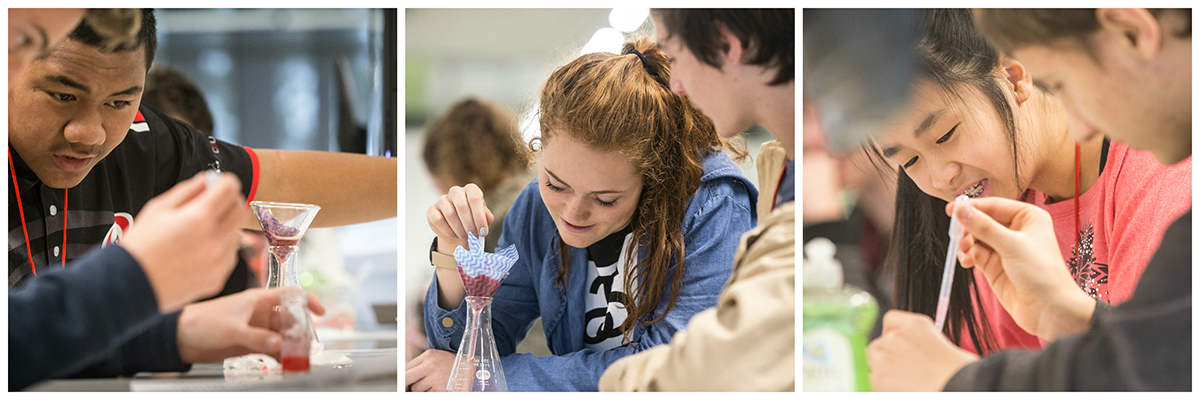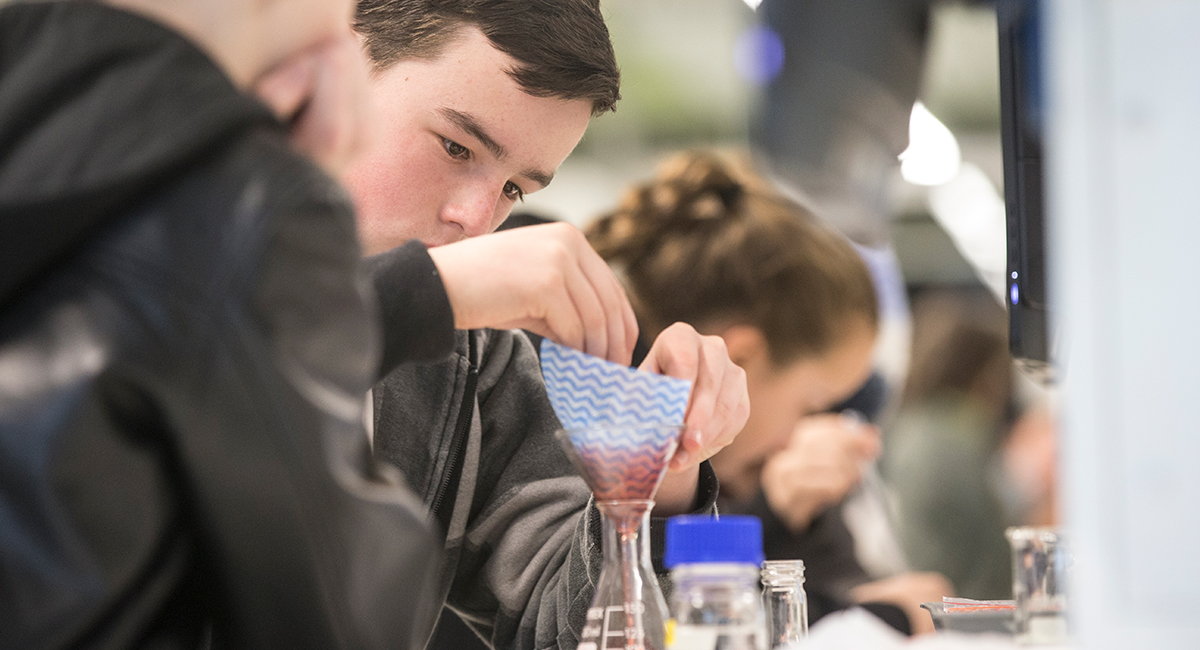July 10, 2015
Teenagers get hands-on with science at new multi-million dollar facility
From dabbling with DNA to concocting chemistry creations and using real satellite data to investigate climate change, high school students from around New South Wales visited UOW for a fun three days of school holiday science from 8-10 July.
The ConocoPhillips Science Experience, aimed at Year 9 and 10 students, featured hands-on science activities at , recently opened by Australia’s Chief Scientist Professor Ian Chubb AC.
A new addition to the program in 2015 saw students learn about climate change; how satellite observations teach us how our climate is changing, how changes in the atmosphere, biosphere, and hydrosphere are linked. Students used real satellite data and model output to investigate the evidence for ongoing climate change and its impacts across Earth.
The annual event, now in its 24th year at UOW, is managed nationally by the Science Schools Foundation and coordinated locally by Julie Wright, Schools Liaison Officer at UOW’s Faculty of Science, Medicine and Health.
“The Science Experience was among the first classes to be held within the new Sciences Teaching Facility. This innovative building includes modern laboratories, mobile touch screen devices and computers on wheels (COWs) and showcased some of what’s on offer at UOW.”
Ms Wright said the Science Experience is a chance for teenagers to come together to be inspired by science.
“This is an opportunity for the students to meet others from around the state with an interest in science and in previous years has led to some long term friendships being forged.”
The program is aimed at encouraging students to continue science studies in senior years at high school and eventually at university. The three-day experience covered a range of science, technology, engineering and mathematics disciplines. The practical activities, field trip and lectures are designed to be both interesting and informative and are aimed at widening the perspective of science and its applications.

